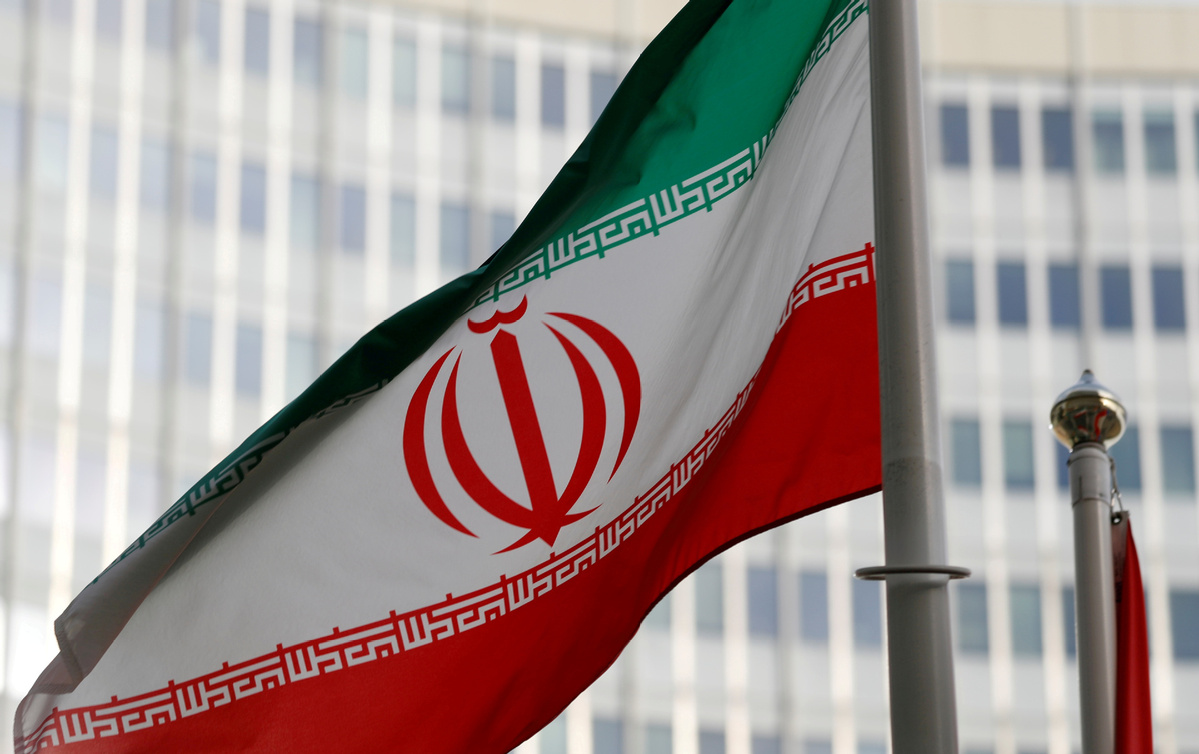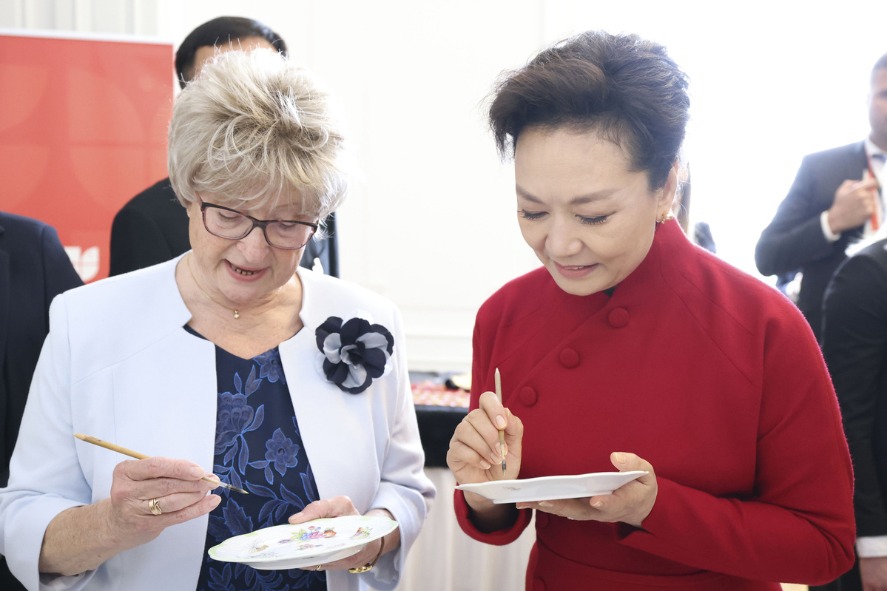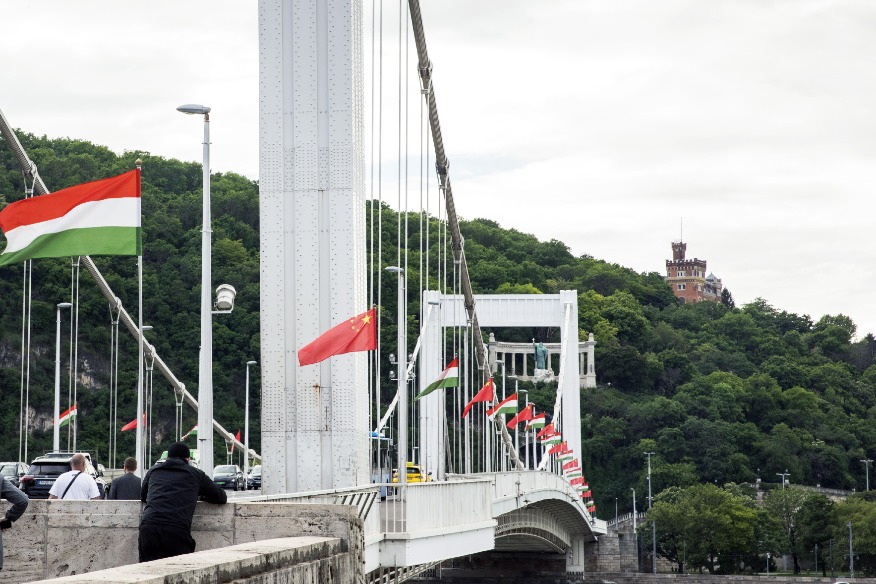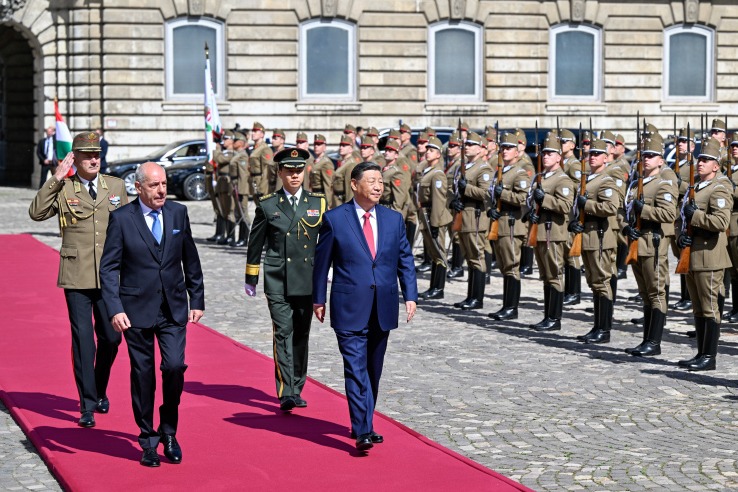Iran deal can still be saved despite setbacks
By Luo Xi | China Daily | Updated: 2019-07-22 07:17

On May 8, 2019, one year after the United States pulled out of the Iran nuclear deal, Iranian President Hassan Rouhani set a 60-day limit for negotiations with the other signatories to the multilateral agreement. Early this month, Iran announced its stockpile of uranium has surpassed the 300-kilogram limit and its enrichment level is above 3.67 percent, suggesting it is set to go back on the other commitments it had made while signing the deal.
With the US intent on putting "maximum pressure" on Iran, which its European allies are less enamored of, and Iran determined to take countermeasures, the future of the Iran nuclear deal appears uncertain. In order to "contain" Iran, the US has issued several strategic documents including the National Security Strategy and Nuclear Posture Review reports, which portray Iran as one of the biggest threats to US national security.
The US' policies to contain Iran include laying a military siege and imposing economic sanctions on Iran, and isolating it from the international community. After exiting the nuclear deal (or Joint Comprehensive Plan of Action), the US began imposing or renewing sanctions on Iran. In April, the US announced it would withdraw sanctions immunity to some countries and regions that import Iranian oil, in order to cripple Iran's oil exports. In June, Washington began massing troops in the Gulf of Persia, and for a time it seemed a US-Iran war was imminent.
By contrast, Iran showed strategic patience and exercised restraint and worked with the other signatories to save the nuclear deal. The International Atomic Energy Agency's first report on the JCPA issued on May 24, 2018, affirmed that Iran was still cooperating with the agency. And over the past months, Iran has been cooperating with the rest of the signatories to the deal and has kept the dialogue channel open with the United Kingdom, France, Russia, China and Germany, in order to offset the impact of US sanctions on its economy.
But Teheran has also taken countermeasures against Washington, by supporting Russia to maintain its troops in Syria, refusing to pull out Iranian troops from Syria and Iraq, enriching its uranium stockpile and developing nuclear technology. But even if Iran has enriched uranium above the level agreed in the JCPA, it doesn't mean it can make nuclear weapons, because there's a long way to go from making 20 percent industrial grade enriched uranium to making 90 percent weapons grade enriched uranium.
Iran has breached the uranium enrichment level not to develop nuclear weapons, at least for the time being, but to respond to the US' bullying. But Iran doesn't appear particularly happy with the performance of the UK, France and Germany to save the JCPA, as they have only urged Iran to continuously abide by the deal, but failed to address its core concern, oil exports. Although the European countries provided an additional€50 million economic aid to Iran and established a special trade settlement mechanism, INSTEX, to offset the impact of US sanctions, such moves have not eased Iran's economic difficulties.
So the future of the Iran nuclear deal mainly depends on the wagering among the US, European countries and Iran. But the stakes the three parties have laid on the table are very different. Iran wants the US to return to the deal and ease the sanctions, while the US demands that Iran withdraw its troops from Syria and Iraq, stop enriching uranium, and incorporate ballistic missile and regional security issues into the deal. As for the European countries, they are urging both the US and Iran to return to the negotiation table.
As such, the Iran nuclear deal appears to exist only on paper. But the fact that the US president called off an approved strike on Iran following the shooting down of a US drone indicates Washington doesn't want to further escalate the situation. On the other hand, despite upgrading its nuclear program as a response to the US' bullying tactics and putting pressure on the European countries to do more to save the JCPA, Iran hasn't closed the communication channel.
And since leaders of the UK, France and Germany are still making diplomatic efforts and appealing to Iran and the US to return to negotiations, there is a chance the Iran nuclear deal could be saved.
The author is a researcher with the Academy of Military Sciences PLA China. The views don't necessarily represent those of China Daily.
























